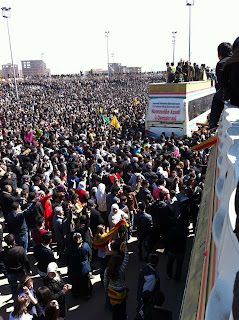Publicado em: O Gaiense, 31 de Março de 2012
Reúne este fim de semana em Bruxelas (na sede da Confederação de Sindicatos Cristãos) uma Cimeira Europeia Alternativa. Vindos de Portugal e dos quatro cantos da UE, e também da Europa não comunitária, juntam-se durante dois dias deputados nacionais, investigadores e académicos, sindicalistas, fundações e movimentos sociais, eurodeputados e membros de partidos europeus. Este megaencontro tem como objectivo coordenar posições e dar mais força à alternativa política que os participantes propõem aos cidadãos europeus como saída da crise.
É abundante a literatura que circula na Europa com propostas alternativas de governação, aprofundadas até por sector com razoável detalhe: política económica, finanças, serviços públicos, saúde, educação, segurança social, legislação do trabalho, cultura, internet, comércio internacional, orçamento e política europeia, etc. A crítica da situação actual no fundamental está feita e é partilhada por uma população largamente descontente com o status quo. As alternativas existem. O que falta então para sairmos deste beco a que fomos conduzidos pelas actuais lideranças e darmos um novo rumo às nossas sociedades? Essa é a principal questão em debate.
Falta certamente conhecimento popular dessas alternativas e sobretudo reconhecimento das forças capazes de as levar à prática. Falta confiança e coragem para mudar.
[ Mais informações em: http://www.european-left.org/ ]





















































